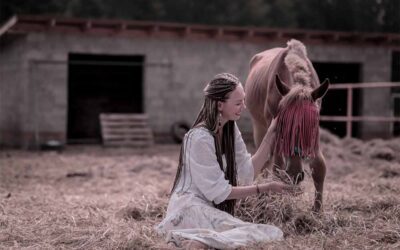Collect for Trinity 3
Lord, you have taught us that all our doings without love are worth nothing: Send your Holy Spirit and pour into our hearts that most excellent gift of love, the true bond of peace and of all virtues, without which whoever lives is counted dead before you. Grant this for your only Son Jesus Christ’s sake.
2 Corinthians 5: 6 – 17
Mark 4: 26 – 34
Why parables?
‘Now, what I want is Facts. Teach these boys and girls nothing but Facts. Facts alone are wanted in life. Plant nothing else, and root out everything else. You can only form the mind of reasoning animals upon Facts: nothing else will ever be of any service to them.’
So speaks Mr. Gradgrind, the teacher in Charles Dickens ‘Hard Times’, in the first chapter of the book. He couldn’t be more wrong. ‘Facts’ alone actually stultify the process of reasoning. On their own, they do not convey meaning or enable learning. To do so, they have to be contextualised, and easily the best way of doing this is through the vehicle of story; and so through the ages, story has been used as the basis of wisdom transfer. Stories have the ability to convey deep truths across generational, cultural and even linguistic boundaries in a way that dry facts never will. Not only that, but the use of stories to teach a lesson offers the added benefit that people actually enjoy hearing them; they are easy to remember and can be repeated and shared. When learning is not seen as a chore but as a pleasant experience, it is also at its most effective.
Jesus is speaking to a crowd by the lakeside. Some will be educated, some not; there will be those who want to learn, others who are just passing by and listen out of curiosity. The stories used by Jesus to explain the Kingdom of heaven – the ‘parables’ – offer understandable truth to all of them whoever they may be– and through many generations, to us.
But to get the best from a story or parable does demand that we think about (and put into practice) it’s significance. What audience is Jesus addressing? Do we identify with one of the actors? Is He explaining about the Kingdom? Is His purpose teaching, encouraging, or rebuking? What lesson are we meant to take away?
Eventually, even Mr Gradgrind realises that facts alone cannot coney truth. A parable may not be ‘factual’ – but does tell a truth – and it is truth that sets us free.
Previous Posts
Praying Together 26th March 2023
We have to ask ourselves if, like Thomas, we are prepared to follow Jesus at whatever cost
Praying Together 19th March 2023
Perhaps, then instead of just giving chocolate and flowers on Mothering Sunday, we might resolve to offer love in return throughout every day of the year
Praying Together 12th March 2023
The story of the woman at the well has been described as one of the most significant to our understanding of the Gospel message.
Praying Together 5th March 2023
This day is all that is good and fair.
It is too dear, with its hopes and invitations to waste a moment on yesterdays.
Praying Together 19th February 2023
If suffering did not exist, we could never know joy. If there was no ‘evil’, we wouldn’t be able to recognise ‘good’.
Praying Together February 12th 2023
Faith means little when God’s plan is the same as our plan. Faith is everything when it isn’t. When we don’t understand, when the things of the world tempt – and often overcome – us. When disaster happens.
Praying Together February 5th 2023
Goddess or Saint? The stories are interwoven, in many cases feeding off each other. But whatever the reality, Brigid’s care for the poor is the common theme – living a life of love and service, for all creation.
Praying Together 29th January 2023
We don’t have to wait for eternity – we can be the body of Christ right here, right now. And then we can begin to take our part in the healing of the Nations.
Praying together 22nd January 2023
The annual Week of Christian Unity seeks to respond to the prayer of Jesus the night before He died, as recorded in John 17,– ‘that they may become completely one’.
Praying Together 15th January 2023
No matter who we are, however sincere our commitment, sooner or later – probably sooner – we’ll blow it. Fortunately, that’s not the end of our Christian life.
Praying Together 8th January 2023
Essentially, our Plough Service is a way in which we can say ‘Please’ – just as on Harvest Sunday, we say ‘Thank you’.
Praying Together 1st January 2023
What does the LORD require of you but to do justice, love mercy, and walk humbly with your God?












